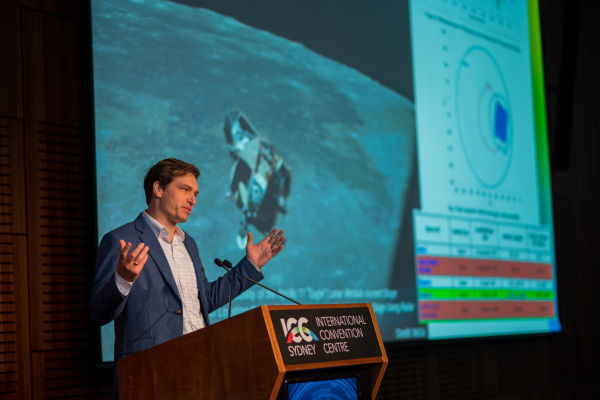Earlier this month I had the pleasure of presenting at the IEEE International RADAR Conference in Sydney, the biggest ever Australian conference on radar. This was a great opportunity for me to highlight the collaborative research and technology being developed to an international audience. Showcasing our academic and industry partners across a slew of projects, spanning science through Defence applications including innovative space technologies and data analytics of radar remote sensing for monitoring sea ice, bushfires and floods.
 Dr Carl Seubert presenting at the IEEE International RADAR Conference
Dr Carl Seubert presenting at the IEEE International RADAR Conference
Through the research being undertaken in these projects, SmartSat sees opportunities and distinct advantages with RADAR remote sensing from space, which we are currently reliant on international and commercial spacecraft. This Earth observation data underpins a number of sectors and has a fundamental impact on society through data analysis. As such, it is important these smart and autonomous algorithms remain at the innovative edge as space systems develop, particularly SAR technologies, and Australia builds skills, hardware and capabilities to utilise it.
With this vision in mind, SmartSat’s SCARLET Lab continues to progress a suite of projects to build this capability in autonomy and onboard-AI. These projects look towards enabling a future ‘space cloud’ that will enable interconnected satellites to perform various tasks, such as imaging, processing data, and transmitting information back to Earth, all while communicating and avoiding collisions autonomously. Building on the SmartSat portfolio, expertise and influence, the goal is to make Australia a world pioneer in solving challenging problems through innovative spacecraft autonomy and AI. SCARLET Lab is a collaborative platform that provides leadership, expertise, advocacy, and coordination.

Dr Carl Seubert
Chief Research Officer